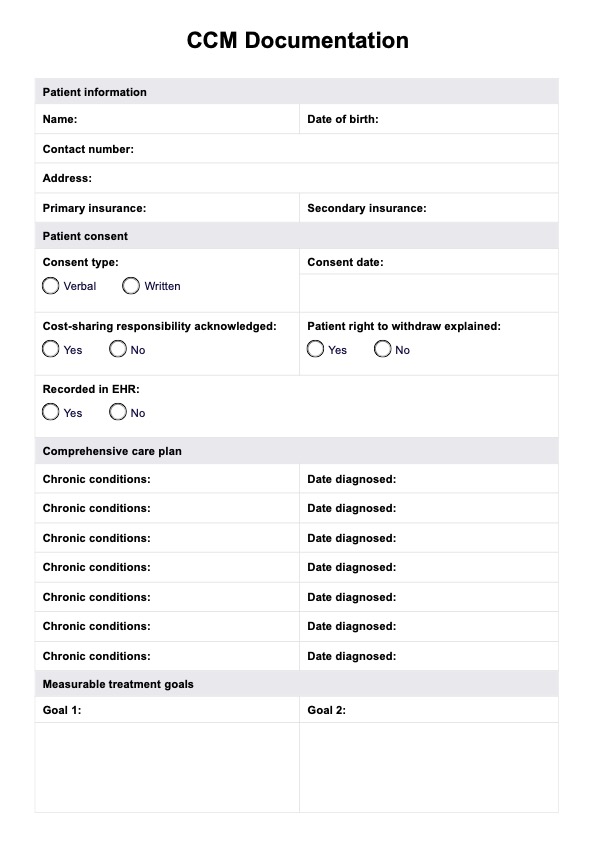A "qualified healthcare professional" refers to a physician or other qualified healthcare providers who are authorized to manage chronic care for eligible patients. These professionals work closely with the patient’s primary care team to deliver effective care management services.

CCM Documentation
Elevate healthcare efficiency with comprehensive CCM Documentation solutions, ensuring seamless patient care and streamlined processes for providers
CCM Documentation Template
Commonly asked questions
Functional decline in patients can be monitored through routine assessments and consistent updates to the patient's medical record. By evaluating changes in physical and cognitive abilities, healthcare providers can adjust care plans accordingly to address these concerns.
Patient consent is critical to ensure the patient’s understanding and agreement to participate in chronic care management services. Healthcare professionals should secure documented consent before starting CCM, including acknowledgment of any cost-sharing responsibilities and the patient's right to withdraw from the program at any time.
EHR and practice management software
Get started for free
*No credit card required
Free
$0/usd
Unlimited clients
Telehealth
1GB of storage
Client portal text
Automated billing and online payments











